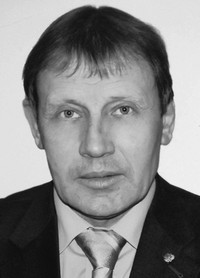CHARACTERISTICS OF THE PROFILE OF THE CORPORATE CULTURE OF THE ORGANIZATION OF HIGHER EDUCATION OF PHYSICAL CULTURE ORIENTATION
Keywords:
corporate culture, OSAI methodology, types and profile of corporate culture, academy of physical culture.Abstract
Objective of the study was to determine the profile of corporate culture, which is characteristic of a peripheral educational organization of higher education (EOHE) with a physical education orientation and to establish trends in achieving its preferred configuration.
Methods and structure of the study. The scientific work was carried out using the OSAI methodology proposed by K. Cameron and R. Quinn (USA), which allows you to determine the profile of the corporate culture of an organization as a sum of its main types: "clan", "adhocracy", "market", "hierarchy" in the existing and desired projections. The data obtained are compared with the averaged profiles of the corporate culture of higher education institutions (EOHE) in Russia, Europe and the USA, which makes it possible to determine the strategy for the formation of this cultural phenomenon in the academy. The object of the study was the cultural space of the EOHE of a physical culture profile.
Results and conclusions. The subject area of the study was a methodology that allows obtaining the value judgments of the respondents (pedagogical workers and workers of support services), on the basis of which both the existing type of corporate culture of EOHE and the strategic (preferred) one are established. The study of the problems of corporate culture educational organization of higher education in general was carried out in accordance with the methodological theory of structural and functional analysis (abstract theory of social systems by T. Parsons), which makes it possible to identify the necessary and sufficient conditions for the introduction of an appropriate typology of values and norms in the process of functioning of a social system.
References
Barsukova T.I., Istomina A.P. Metodika OSAI v issledovanii bazovykh predstavleniy v organizatsionnoy kulture vuza. [OCAI methodology in the study of basic ideas in the organizational culture of the university]. Vestnik Maykopskogo gosudarstvennogo tekhnologicheskogo universiteta. 2018. No. 2. pp. 117-122.
Belyaeva M.N. Korporativnaya kultura vuza kak resurs organizatsionnogo razvitiya [Corporate culture of the university as a resource for organizational development]. AlmaMater. 2011. No. 4. pp. 45-48.
Dremina M.A., Gorbunova G.A., Kopnov V.A. Vliyaniye korporativnoy kultury na odornatsiyu kompetentsiy vypusknikov [Influence of corporate culture on graduating competences]. Obrazovaniye i nauka. 2015. No. 5. pp. 39-57.
Cameron K.S. Diagnostika i izmereniye organizatsionnoy kultury [Diagnostics and measurement of organizational culture]. Kuinn R.E. [transl.]. St. Petersburg: Piter publ., 2001. 320 p.
Mogutnova N.N. Tipy korporativnoy kultury na sovremennykh rossiyskikh predpriyatiyakh [Types of corporate culture at modern Russian enterprises]. PhD diss.: 22.00.04. Moscow: RGGU publ., 2007. 195 p.
Parsons T. O strukture sotsialnogo deystviya [On the structure of social action]. Moscow: Direkt-Media publ., 2007. 1246 p. [Electronic resource]. Available at: https://biblioclub.ru.index.php?page=book&id=26562 (date of access:14.12.2021).
Spivak V.A. Korporativnaya kultura: teoriya i praktika [Corporate culture: theory and practice]. St. Petersburg: Piter publ., 2001. 352 p.
Trotsuk I.V., Sukhoverkhova D.V. Korporativnaya kultura kak instrument povysheniya konkurentosposobnosti vuza [Corporate culture as a tool to improve the competitiveness of the university]. Vyssheye obrazovaniye v Rossii. 2018. Vol. 27. No. 11. pp. 44-54.
Scholz C. Organizahions kultur: Die vier Erfolgsprin zipien. Wiesbaden: Gabler, 1990. 236 p.


